- Home
- Mike Lupica
The Turnover
The Turnover Read online
This book is for the great Esther Newberg.
ONE
Lucas Winston loved basketball the most when it was just him and Gramps in the park.
He also loved being on the seventh-grade town team in Claremont. He loved playing in the Twin Lakes League season, against all the other town teams in their area. He loved the fact that his sixth-grade team had won the Twin Lakes championship last year. And he sure didn’t hate that his best friend, Ryan Moretti, was the most gifted big man in the league, and a player who knew what to do with the ball when Lucas passed it to him.
“No two boys your age ever ran the pick-and-roll better,” Gramps said to Lucas one time.
Gramps had a way of making almost anything into the best he’d ever seen or known, starting with the French toast he’d had for breakfast that morning at the Claremont Diner.
“Trust me,” Gramps said. “You know how they say, ‘Ball don’t lie’? When it comes to analyzing basketball, I don’t either.”
“I know,” Lucas said. “Nobody knows more about basketball than you do.”
Last year Sam Winston had been the only grandfather coaching in the Twin Lakes League, and the Claremont Wolves had won their first title since before Lucas was even born. The parents on the board of directors were so happy with the job he’d done, they asked him to come back and coach the seventh graders this season, even though he’d announced he was retiring.
Lucas never believed Gramps’s heart was really in retiring. He knew he’d never stop loving basketball the way he did, and would always want to teach it. So Lucas had been the one to talk him out of it.
At the time he said to his grandfather, “You and I are the best team in town. And I’m not letting you break up that team.”
Lucas believed it too. He knew Gramps had taught him as much about being a good teammate as he had about being a good point guard. Persuading Gramps to come back was just one more way of being the best teammate he could be.
Lucas’s grandfather was really the only father Lucas had ever known. His real father had died of cancer right after Lucas was born. So they had always been a team, and not just in basketball. Sam Winston had never been too busy for Lucas, even before he’d retired from driving a USPS truck and delivering the mail.
It wasn’t too cold tonight under the lights at Westley Park. Tryouts were over for this year’s Wolves. The roster had been set. Their first game, against Homestead, was scheduled for next Saturday morning, in the new gym at Claremont Middle School.
Lucas and Gramps were working on what his grandfather called “old-school stuff.”
“Which some people would probably call ‘old-man stuff,’ ” Sam Winston said.
“But you always tell me that the fundamentals never get old,” Lucas said.
“You just have to adapt them to the times,” Gramps said. He smiled. With his white hair and white beard, when he smiled he always reminded Lucas a little bit of Santa Claus. “You know I didn’t like the three-point shot when they first shoved it down my throat. And I can’t say as I love it even now. But I’m smart enough to know that if all you do is look back, you’re going to get left behind, no matter how much you love the game.”
They were both dressed in hoodies and sweatpants. Gramps was wearing one with USPS on the front. Lucas was wearing the purple Lakers hoodie that Gramps had bought him to replace the one from the Cavs he’d given Lucas when LeBron James was still playing in Cleveland. LeBron, even though he was the one getting older now, was Gramps’s favorite out of all the modern NBA players. He’d become one of Lucas’s favorites too.
Gramps said it wasn’t LeBron’s size or his strength that made him love LeBron’s game so much. It was his unselfishness. It hadn’t helped the Lakers very much in his first season in Los Angeles. But the point Gramps kept hitting with Lucas was that the best player in the NBA was also the best teammate.
“He never takes a shot if his teammate has a better one,” Gramps said.
“My coach always tells me that’s the first rule of offensive basketball,” Lucas said, knowing he was about to quote Gramps to Gramps. “If you’re open, shoot the darn ball. If you’ve got a teammate more open than you, pass it and let him shoot the darn ball. Or her.”
Gramps smiled again.
“And who said that first,” Gramps said, “even if nobody but me remembers?”
“Coach Red Auerbach of the Boston Celtics,” Lucas said, feeling as if he were answering a question in class.
“And who was Red Auerbach?” Gramps said.
“The greatest NBA coach of all time,” Lucas said. Now he smiled. “Even if Phil Jackson came along later to win more championships.”
That was another thing Gramps was big on: having Lucas understand the history of the game. Looking back, he told Lucas, would help him understand how basketball had changed.
“I know people act as if those old Boston Celtics that Red coached played their home games at Jurassic Park,” Gramps said. “But I’m going to tell you something right now: Red Auerbach loved Michael Jordan and he would have loved LeBron.”
Lucas didn’t care if his friends didn’t love basketball history the way he did. Gramps cared; that’s what mattered to him. And if he did, Lucas did.
Tonight at Westley Park the two of them had spent a fair amount of time working on the high pick-and-roll, which was so old school, Gramps joked he wasn’t even sure they had schools when teams started using the play. Lucas and Ryan had run it all last season, and Gramps said they were going to wear teams out running it again this season.
Gramps said the truth was that if you started your offense that way and ran it right, it didn’t matter whether the other team knew it was coming or not.
Gramps was playing the part of Ryan tonight. Over and over he’d limp up to the top of the key on his aching knees, wincing as he did. Those knees, Lucas knew, were the oldest things about his grandfather. Not his mind. Not his attitude. Not even his heart. Just the knees. He never begged off playing. He never complained about his knees, even though Lucas could see the pain on his face when he’d move around a lot like this.
As soon as Gramps called for the ball, Lucas tossed it to him.
“Switch!” Gramps yelled, passing the ball to Lucas as he moved to his right.
It meant the imaginary player guarding him was jumping out to guard Lucas.
Lucas didn’t hesitate as Gramps spun away from him and hobbled down the left side of the lane toward the basket. He lofted a pass over the smaller imaginary player who would have switched over to guard Gramps, hit Gramps perfectly in stride—if you could even call what his grandfather did striding—and Gramps put a left-handed layup off the backboard and gently through the net.
“Now that’s what I’m talking about!” Sam Winston said.
“Did I get the pass away quickly enough?” Lucas asked.
Gramps hated it when you were late exploiting an opening the defense had presented to you. He who hesitates, Gramps liked to say, loses an easy bucket.
“Can’t even remember the ball touching your hands,” Gramps said.
Lucas ran and collected the ball so Gramps didn’t have to, dribbled back to the top of the key himself, giving his grandfather a low-five as he passed him.
“Let’s do it again,” Gramps said.
This time Gramps held the ball high over his head and told Lucas to make a sharp cut so close he could brush hips with Gramps on the way by. Lucas did that, streaking for the basket down the right side of the lane. Out of the corner of his eye, he saw his grandfather turn, pivot to his right, and then hit Lucas with a perfect chest pass before Lucas laid the ball in.
“All night long,” Sam Winston said.
Fine with me, Lucas thought.
The night air was
starting to get much colder. Lucas barely noticed. By now he’d worked up a good sweat. He was as into the drills they were running as if this were an official practice, and his teammates were out here with him.
But it was better than that.
It was basketball and it was Gramps.
Lucas loved his mom, totally and completely. He knew how difficult it had been for her without a partner, trying to be two parents at once. He knew how hard she had tried to tell him about his father, trying to tell the story of his life through old photographs and old home videos. Gramps had done the same. Lucas understood they were trying to explain the person and the father he’d lost. He could see how much they both had loved his dad. He sometimes imagined how awesome it would have been to have both his parents and his grandfather around.
But as hard as he tried, he couldn’t feel a sense of loss about someone—and something—he’d never had.
It was why he loved Gramps as much as he did. Lucas knew he was trying to be grandfather and father the way his mom was trying to be father and mother to Lucas. And that was all right. Sometimes he would get sad when he’d look at the pictures of his dad holding him when he was a baby. Or looking at a video of his dad holding him on his first Christmas.
But he was still happier with what he had than sad about what he’d never had. He’d read one time that sometimes you didn’t have to go looking for heroes, because they found you. He had his mom. He had his grandfather. He had a lot.
When they were finished working on the pick-and-roll, Gramps kept feeding Lucas the ball so he could work on his outside shot, which was getting better all the time. Even at the age of twelve, Lucas knew he was a pass-first point guard. He liked making a great pass more than a good shot. But as many assists as he’d gotten last season, and Gramps swore Lucas had led the league, and even though he’d been named to the Twin Lakes All-Star Team, he could see guys playing off him, daring him to shoot from the outside, making it harder for him to drive to the basket, and create opportunities for himself and the Wolves when he did.
He had vowed that this season would be different.
His free throws were still the worst part of his game, the one area where he wasn’t confident, where his nerves would often get the best of him. Lucas loved being in motion, whether he had the ball or not. Then he’d get to the line and be standing still, and it was like he felt frozen. But Gramps told him that the more confident he got with his outside shot, the more that would translate to his free throws. If you could do one, he said, you could do the other.
It had to get better, or he couldn’t have the ball in his hands at the end of a close game. He would be worrying about getting fouled and going to the line and maybe having to decide the game there.
Tonight he felt good from the line, hot on the cold night, making eight of his last ten.
But they weren’t quite finished.
“Okay,” Gramps said. “Down one. You just got fouled trying to make a layup. Ended up on your butt. Two shots to win the game.”
Lucas took the ball, stepped to the line, and went through the new pre-shot routine they were trying this season: ball on his left hip to start. Three dribbles, looking at the basket the whole time. Breathe in, breathe out. Bend the knees. Let it go.
Swish.
“Tie game,” Gramps said, grabbing the ball after it went through the net. He bounce-passed it back to Lucas, smiling the Santa Claus smile again. “Did I mention that it’s the championship game and there’s only one second showing on the clock?”
Lucas smiled back.
“I felt as if that was one of your implied-type things,” he said.
Put the ball on his hip. Three dribbles. Breathe. Bend. Shoot.
Swish.
Gramps came over and put his arm around him.
“Ball don’t lie,” he said.
Others in Lucas Winston’s life would lie before the season was over. He just didn’t know that at Westley Park. Not yet.
TWO
Lucas invited Gramps in for homemade apple pie left over from dinner when they pulled up in front of the house on Cypress Lane. It was the only house Lucas had ever known.
“Doc says I have to cut down on the sweets,” Gramps said. “More old man stuff.”
“You keep talking about how old you are,” Lucas said. “But we were talking after practice the other day, and we all wish we had as much energy as you do.”
“All I can do now is talk a good game,” he said.
His grandfather leaned over from behind the wheel, kissed Lucas on the cheek, and told him he’d see him tomorrow night at practice.
Lucas asked what he was going to do when he got home.
“Watch a game,” he said.
“Which one?”
“Any one,” Gramps said.
The car didn’t pull away until Lucas was inside the front door and waving out at his grandfather. Lucas’s mom was at the kitchen table, grading papers. She taught English at the small college in town, St. Luke’s.
She looked at Lucas over her reading glasses and smiled.
“I was thinking after you left tonight,” Julia Winston said, “that if I added up your official practices with the Wolves and your unofficial practices with your grandfather, basketball is as much of a job for you as seventh grade is.”
“But I don’t think of it as a job, Mom,” Lucas said. “A job is cleaning my room.”
“I’m glad you brought that up,” she said, still smiling at him.
“I should have known I was walking into a trap,” he said. “But I promise I’ll do it at halftime of the game.”
“There’s always a game,” she said.
“It’s the Celtics,” he said.
If LeBron was Lucas’s favorite player, the Celtics were his favorite team, because they had been his dad’s team. Same with his mom. And they shared the same favorite Celtic, Jayson Tatum, the small foward from Duke whom Lucas was sure was going to be one of the best players in the league someday, probably soon.
“I’ve got a better idea,” she said. “Why don’t you run upstairs and clean your room now, and then maybe we’ll have a conversation about you maybe being able to watch till the end of the game tonight.”
“Who’s the best mom in the world?” he said.
“The one who will only consider letting you stay up late if your room passes inspection,” she said. “Which would be the same mom who plans on watching some of the game with you as soon as I finish reading these papers.”
It wasn’t that she didn’t like basketball. She did. She had told Lucas plenty of times about how much she’d loved watching his dad play when he was the star at Claremont High School, at least before he tore up his knee his senior year, doing enough damage to it that he lost out on any chance at a college scholarship. Gramps had talked more about the player Michael Winston had been, the kind of star high school point guard he wanted Lucas to grow up to be.
But instead of playing in college, he’d become a pre-med student. After college he went to med school, and a few years after graduating from med school he became the youngest team doctor in the history of the Boston Celtics, an orthopedic surgeon specializing in the kind of ACL tear that had ended his career.
He was only in his early thirties. If he couldn’t still play basketball himself, he was working for the team that had been his team growing up. Then he had gotten sick. Lucas had read up on the kind of pancreatic cancer that had taken his dad from him before he even knew him. The only blessing, according to Gramps and his mom, was that it had happened fast. According to them, he had been diagnosed at Thanksgiving, and died a couple months after the one and only Christmas he had been able to share with his baby son. Now Lucas was only able to have Christmases with his dad in the pictures, and the videos.
“You can’t live your life fixed on what you never had,” Gramps had said to Lucas more than once. “You start doing that, it will eat away at your heart.”
Then he’d say to Lucas, “The key to r
eal happiness in this world is appreciating what you have, and knowing what you want. Everything else is just noise.”
Lucas wasn’t sure what the noise part meant. But he trusted that his grandfather knew what he was talking about, and not just because he’d lived as long as he had. He trusted him to know what was right, and not just on a basketball court.
Some nights Gramps would come over and watch a game with Lucas on television. Some nights his mom would watch with Lucas, and they’d turn off the sound on the television, and each of them would read a book. Lucas figured he’d probably been born with a love of basketball in him, because of both his dad and Gramps. But he knew he’d gotten his love of reading from his mom.
But she remained a basketball fan herself. A couple times a year, she’d manage to score tickets to a Celtics game, and she and Gramps and Lucas would make the two-hour car ride to Boston, usually on a Friday or Saturday night. It was just one of about a thousand ways Lucas’s mom could find to show him how much she loved him. And she never missed one of his games.
“You’re sure you’re not too tired to watch?” Lucas said after he had cleaned up his room. The game was still in the first quarter.
“Tired of us losing to the Pistons right now,” she said.
“It’s the end of a long road trip,” Lucas said.
“We still can’t be losing to the Pistons,” she said.
He’d finished his homework before he’d left for Westley Park. He’d done a really good job on his room, not even tossing any clothes under the bed, as much of a hurry as he was in. Now he was next to his mom on the couch. As usual, Lucas had his laptop out so he could follow what was happening in other games around the NBA. For now, though, he was focused on the Celtics, who seemed to be making up a ten-point deficit in a blink, mostly because of the defense and ballhandling and passing of Jayson Tatum, who was suddenly on a rip. Tatum had just driven down the lane and then kicked out a no-look pass to Gordon Hayward in the corner. Then Hayward drained a wide-open three-pointer.
“Gramps says that people always talk about the open man in basketball,” Lucas said to his mom. “But he says they should talk about the most open man.”

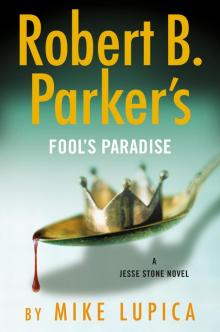 Fool's Paradise
Fool's Paradise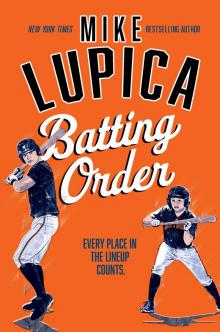 Batting Order
Batting Order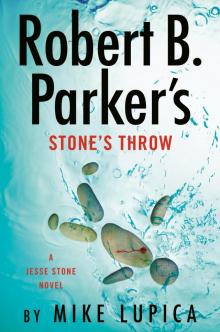 Stone's Throw
Stone's Throw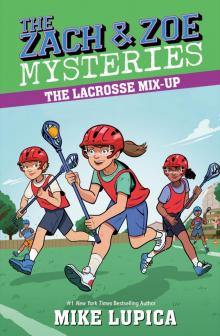 The Lacrosse Mix-Up
The Lacrosse Mix-Up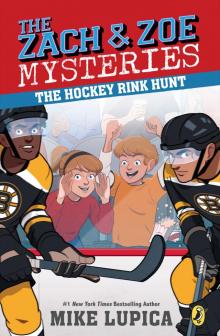 The Hockey Rink Hunt
The Hockey Rink Hunt Payback
Payback Triple Threat
Triple Threat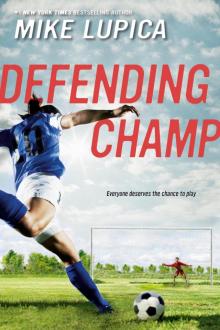 Defending Champ
Defending Champ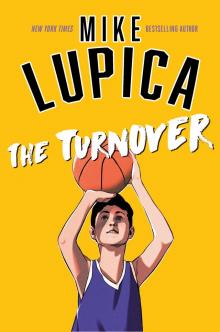 The Turnover
The Turnover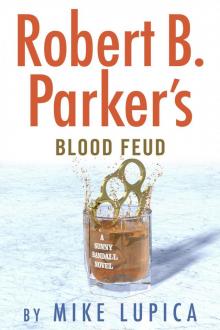 Robert B. Parker's Blood Feud
Robert B. Parker's Blood Feud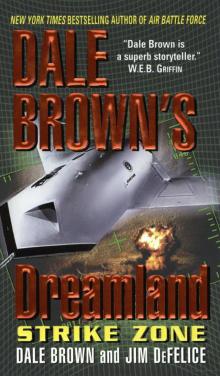 Strike Zone
Strike Zone Hero
Hero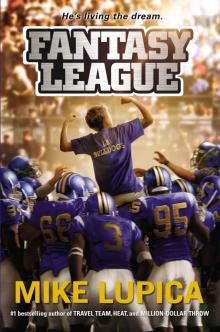 Fantasy League
Fantasy League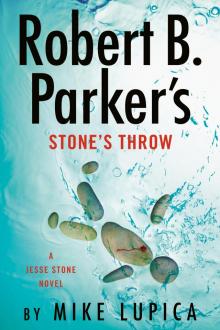 Robert B. Parker's Stone's Throw
Robert B. Parker's Stone's Throw The Big Field
The Big Field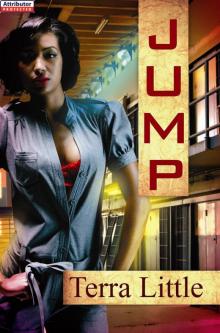 Jump
Jump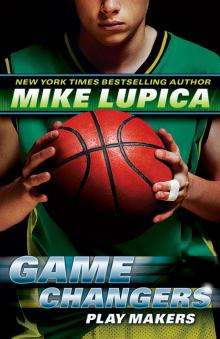 Play Makers
Play Makers The Underdogs
The Underdogs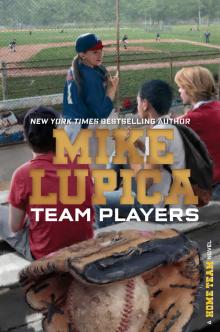 Team Players
Team Players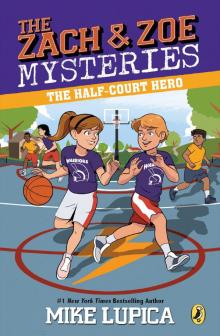 The Half-Court Hero
The Half-Court Hero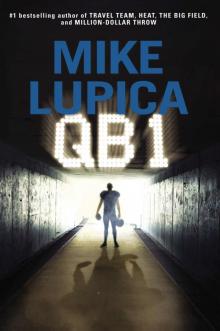 QB 1
QB 1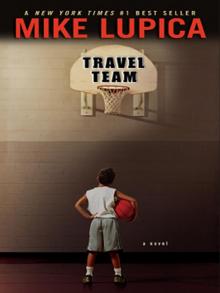 Travel Team
Travel Team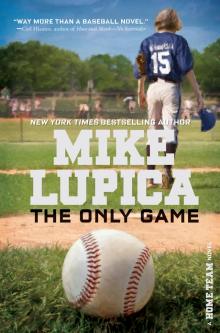 The Only Game
The Only Game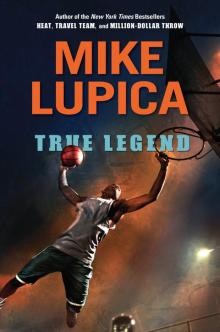 True Legend
True Legend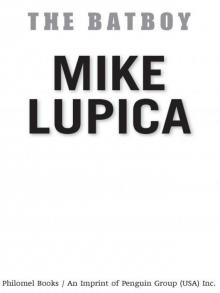 The Batboy
The Batboy Hot Hand
Hot Hand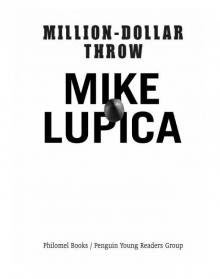 Million-Dollar Throw
Million-Dollar Throw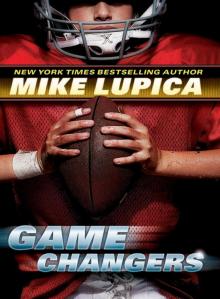 Game Changers
Game Changers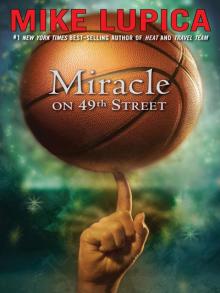 Miracle on 49th Street
Miracle on 49th Street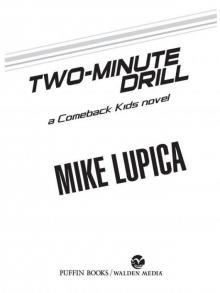 Two-Minute Drill
Two-Minute Drill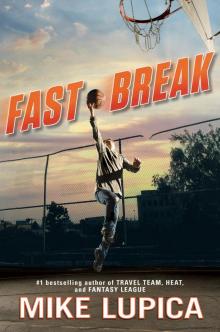 Fast Break
Fast Break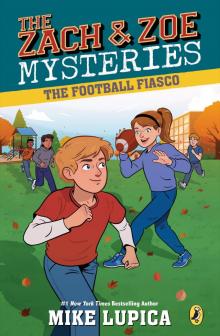 The Football Fiasco
The Football Fiasco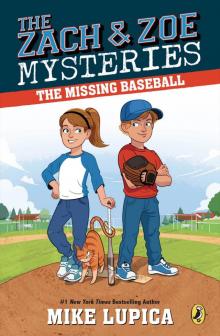 The Missing Baseball
The Missing Baseball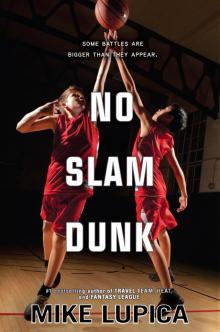 No Slam Dunk
No Slam Dunk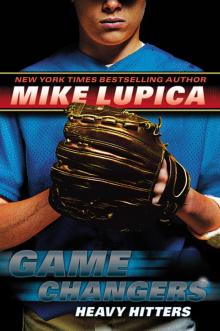 Heavy Hitters
Heavy Hitters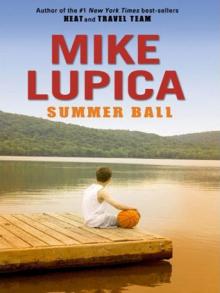 Summer Ball
Summer Ball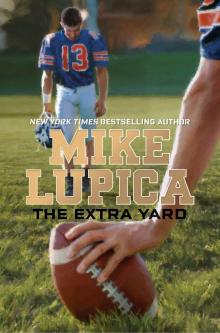 The Extra Yard
The Extra Yard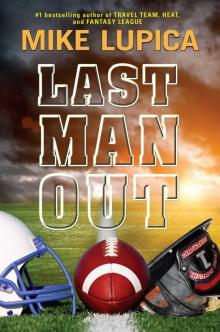 Last Man Out
Last Man Out